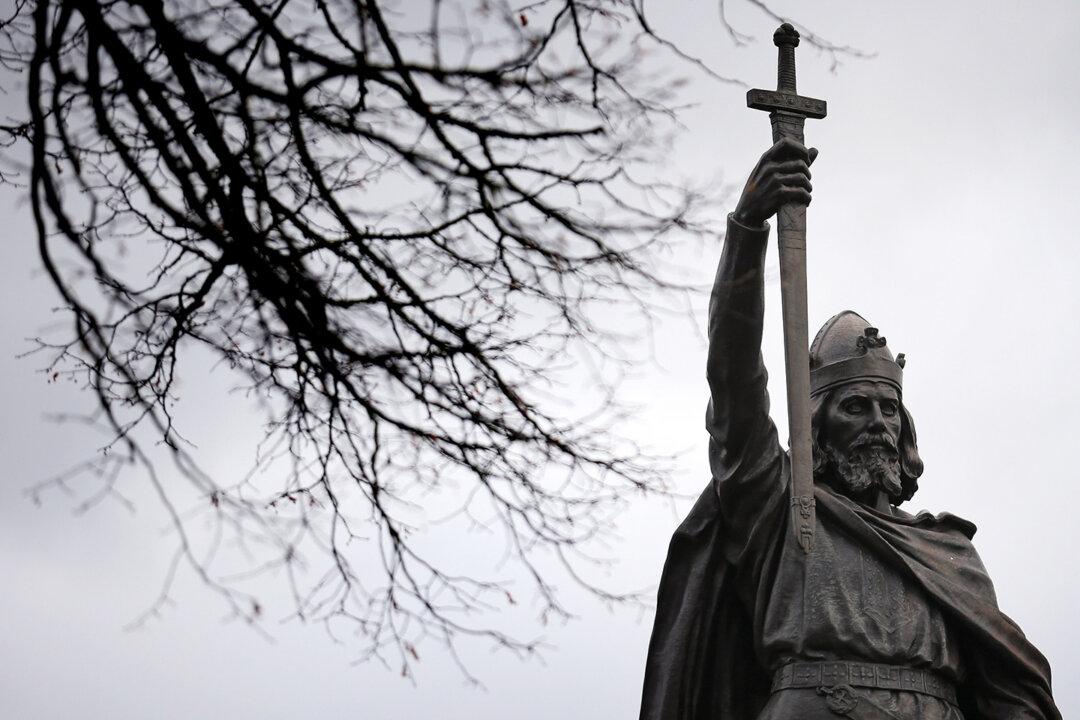If we today know anything at all about King Alfred the Great (circa 849–899), it’s most likely because we’ve heard the legend of the burnt cakes.
After being defeated in battle by the Danes, a people associated with the Vikings, Alfred fled to the marshlands of Somerset and the tiny Isle of Athelney. Alone and shivering with the winter’s cold and damp, he found shelter in the hut of a humble peasant woman. The old woman, who had no idea of Alfred’s identity, was cooking cakes, a sort of flatbread, beside the fire. When she needed to do chores in the yard, she asked her guest to keep an eye on the cakes in her absence.






